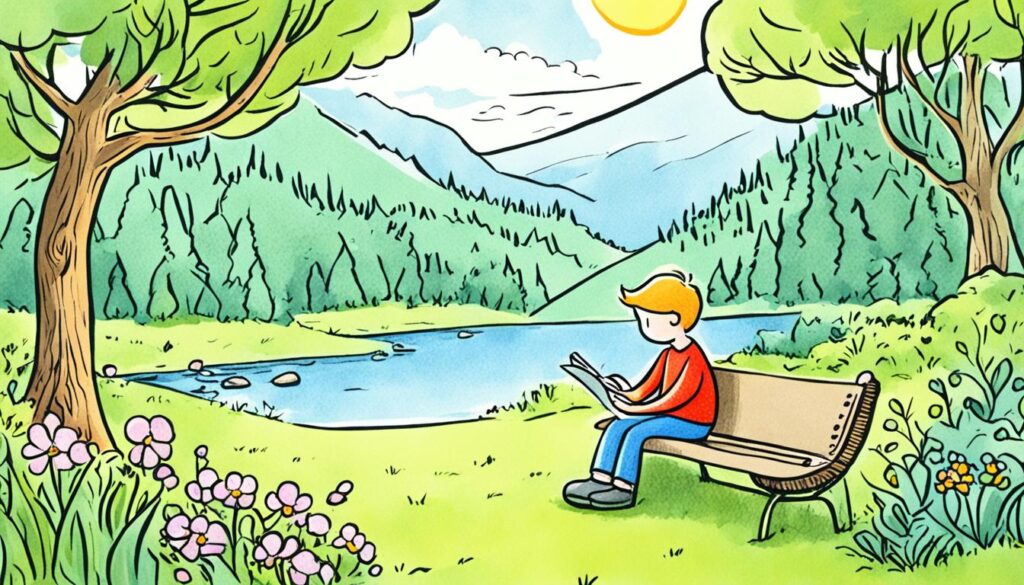Do you ever wonder how to navigate your friendships with introverted individuals? Have you found it challenging to connect with someone who seems to thrive in solitude? Understanding introversion and learning effective strategies to support and communicate with your introverted friends can significantly enhance your relationship.
Introverted friends have unique social needs and preferences that may differ from those of extroverted friends. While extroverts tend to gain energy from socializing, introverts often recharge by spending time alone. This fundamental difference can sometimes lead to misunderstandings and strained interactions. However, by embracing these differences and employing the right approach, you can create a strong bond with your introverted friends.
Let’s see 9 effective tips for dealing with introverted friends and strengthening your connection with them. These tips are based on expert advice and real-life experiences of individuals who have successfully navigated introvert-extrovert friendships.
Key Takeaways:
- Understanding and respecting your introverted friend’s need for alone time is crucial for a healthy friendship.
- Plan one-on-one low-stimulation activities to create an environment where your introverted friend can feel comfortable and engage in meaningful conversations.
- Quality time and deep conversations are highly valued by introverted friends. Make an effort to schedule regular catch-up sessions that allow for focused interaction.
- Discover solo shared hobbies by asking your introverted friend about their interests. Support their creative pursuits and share your experiences with each other.
- Respect your introverted friend’s need for quiet time to recharge after social outings. Show empathy and give them space to unwind.
Plan primarily one-on-one low-stimulation activities
When it comes to spending time with your introverted friends, it’s important to consider their preferences for one-on-one interactions and activities that are not overwhelming in terms of sensory stimulation. By planning low-stimulation dates, you can create an environment that allows for meaningful conversations and quality time together.
Here are a few examples of low-stimulation activities that you can suggest:
- Go for a casual coffee meetup at a quiet café where you can sit and talk comfortably.
- Take a leisurely walk in nature, such as in a local park or botanical garden, where you can both enjoy the tranquility and beauty of the surroundings.
- Have a cozy movie night at home, complete with comfortable seating, dim lighting, and a selection of movies that cater to your shared interests.
By planning these one-on-one low-stimulation dates, you can create an environment that allows for meaningful connections and facilitates open and honest communication with your introverted friends.
| Benefits of one-on-one low-stimulation dates: |
|---|
| Provides a comfortable and non-overwhelming environment for introverted friends. |
| Allows for deep and meaningful conversations. |
| Creates opportunities for quality bonding time. |
| Respects and honors introverts’ need for low-stimulation activities. |
Communicate affection through quality time
Introverted friends often value quality time and meaningful conversations over large social gatherings. They appreciate having undivided attention and the opportunity to connect on a deeper level. By prioritizing quality time, you can show your introverted friend that you genuinely care about their needs and want to strengthen your bond.
Schedule regular catch-up sessions where you can focus on each other without distractions. This could be a cozy coffee date, a leisurely walk in nature, or a movie night at home. The key is to create a comfortable and relaxed environment that allows for authentic communication and connection.
During your quality time together, engage in deep conversations that allow your introverted friend to express their thoughts and feelings. Listen actively and show genuine interest in what they have to say. By creating a safe space for open and meaningful dialogue, you can foster a sense of trust and emotional intimacy in your friendship.
Additionally, plan meaningful experiences together that align with your shared interests. Attend a workshop or take a weekend trip to explore new places and create lasting memories. These shared experiences can deepen your connection and provide opportunities for personal growth.

Ask about interests to find solo shared hobbies
One of the ways to strengthen your bond with introverted friends is by exploring shared hobbies that they can enjoy on their own. Introverted individuals often have unique interests and hobbies that they prefer to do alone, allowing them to recharge and find solace in their personal activities. By asking about their favorite books, movies, or other forms of entertainment, you can discover common interests that you can discuss and appreciate together.
Encourage your introverted friend to explore their creative side and support their artistic endeavors. This could involve suggesting art projects, recommending new music or podcasts, or even attending local exhibitions or performances that align with their interests. By showing genuine interest and enthusiasm for their hobbies, you can strengthen your bond and create opportunities for meaningful conversations.
Another idea is to try out new hobbies individually and then share your experiences with each other. For example, you could both take up photography as a hobby and later discuss the photos you captured or the techniques you learned. This allows you to engage in solo activities that align with your individual interests while still finding ways to connect and bond over your shared experiences.
| Benefits of asking about interests for solo shared hobbies: |
|---|
| • Facilitates bonding over common interests |
| • Allows introverted friends to pursue their hobbies with support |
| • Provides opportunities for meaningful conversations |
| • Strengthens the bond between introverted and extroverted friends |
Respect the need for follow-up quiet after outings
After social outings or gatherings, it’s important to respect the needs of your introverted friends. Unlike extroverts who gain energy from social interaction, introverts often feel drained and need time alone to recharge and process their experiences.
Understanding and respecting their need for follow-up quiet is crucial for maintaining a healthy and harmonious friendship. Giving them space to unwind and recharge without interruptions shows that you care and value their well-being.

You can check in on your introverted friend without overwhelming them by sending gentle text messages or occasional calls to let them know that you’re thinking of them. However, be mindful not to intrude on their quiet time.
Remember that this quiet time is essential for introverted individuals to rejuvenate and strike a balance between social interaction and solitude. By honoring their need for follow-up quiet, you contribute to the health and longevity of your friendship.
Offer reassurance about the depth of friendship
Introverted friends often value deeper connections and meaningful relationships. They appreciate friendships that go beyond surface-level interactions. As their friend, it’s important to offer reassurance about the depth of your relationship.
Express genuine appreciation for your introverted friend and let them know how much they mean to you. Share specific qualities or actions that you admire about them. This reassurance will help them feel valued and cherished in the friendship.
Provide emotional support and be a good listener when your introverted friend opens up about their thoughts and feelings. Show empathy and understanding, creating a safe space for them to be vulnerable and share their innermost thoughts.
Show that you care by being present and attentive during your interactions with them. Engage in meaningful conversations and actively listen to what they have to say. Let them know that you value their perspective and that your friendship is based on a deep connection.
A successful friendship with an introvert is built on trust, understanding, and a genuine appreciation for each other’s unique qualities. By offering reassurance about the depth of your friendship, you nurture the bond and create a lasting connection.
Compliment authenticity over social graces
Introverted friends often prioritize authenticity and sincerity over social graces and superficial interactions. They value genuine connections that are built on mutual understanding and trust. When interacting with your introverted friend, make an effort to acknowledge and appreciate their thoughtfulness.
For example, if your friend shares their unique perspective on a topic or opens up about their feelings, express your gratitude for their honesty. Let them know that you value their insights and admire their authenticity. By doing so, you create a safe and supportive space where your introverted friend feels comfortable being their true self.
In social situations, avoid putting pressure on your introverted friend to conform to societal expectations or engage in small talk. Instead, celebrate their authentic self and encourage them to embrace their introvert personality traits.

| Authenticity | Social Graces |
|---|---|
| Emphasizes genuine connections | Focuses on surface-level interactions |
| Prioritizes sincerity | Values social etiquette |
| Appreciates honesty and openness | Places importance on polite conversation |
| Supports unique perspectives | Conforms to societal expectations |
Avoid group planning without considering desires
Introverted friends may feel overwhelmed or uncomfortable in large group settings. It’s important to consider their individual preferences and comfort levels when making plans. By offering alternatives to large social gatherings, such as intimate dinners or smaller events, you can create a balanced social environment that accommodates the needs of both introverted and extroverted friends.
For example, instead of organizing a big birthday bash, you could suggest a cozy dinner party with a select group of close friends. This allows your introverted friend to enjoy the celebration while still feeling comfortable and at ease.
Additionally, consider engaging in activities that provide opportunities for meaningful conversation and connection. For instance, you could plan a board game night or a hiking trip with a small group of friends, fostering a more intimate and relaxed atmosphere.
By taking the desires and preferences of your introverted friends into account, you can create a friendship dynamic that respects and supports their needs, ultimately strengthening your introvert-extrovert friendship.
Accept discomfort with constant social interaction
Introverted friends may feel drained or overwhelmed by constant social interaction. It’s important to understand and accept their discomfort, as it is a natural aspect of introversion. One way to gain a deeper understanding of their experience is by learning about the concept of the introvert hangover. This term refers to the exhaustion and mental fatigue that introverts may experience after prolonged socializing.
To support your introverted friends, allow them to take alone time when needed without taking it personally. Understand that their need for solitude is not a reflection of their feelings towards you, but rather a way for them to recharge their energy. Show empathy and support by reassuring them that their need for solitude is completely normal and valid.
By accepting and respecting their discomfort with constant social interaction, you can create a supportive environment for your introverted friends and nurture your introvert-extrovert friendship.

| Ways to Support Introverted Friends |
|---|
| Validate their need for alone time |
| Don’t take their need for solitude personally |
| Show empathy and understanding |
| Respect their boundaries |
Express care through consistency and reliability
One of the most important ways to show your care for your introverted friend is by being consistent and reliable in your actions. Being dependable and trustworthy builds a foundation of trust in your friendship. Make a conscious effort to show up when you say you will and keep your commitments.
Regular communication is key in maintaining a strong bond with your introverted friend. Even a quick text to check in can go a long way in expressing your care and keeping the connection alive. Knowing that they can rely on you for support and companionship will make your introverted friend feel valued and appreciated.
Consistency and reliability are like a rock in the friendship, providing stability and reassurance. When you consistently show up and keep your word, it sends the message that you are committed to the friendship and that your introverted friend can count on you. This builds a sense of security and strengthens the bond between you.
FAQ
What are some effective tips for dealing with introverted friends?
Understanding and respecting their need for alone time, planning one-on-one low-stimulation activities, and communicating affection through quality time are some effective tips for dealing with introverted friends.
How can I plan activities that cater to my introverted friend’s preferences?
When planning activities, consider their preference for one-on-one interactions and activities that are not overwhelming in terms of sensory stimulation. Suggest casual coffee meetups, walks in nature, or movie nights at home.
How can I communicate affection to my introverted friend?
Schedule regular catch-up sessions where you can focus on each other without distractions. Engage in deep conversations that allow your introverted friend to express their thoughts and feelings. Plan meaningful experiences together, such as attending a workshop or going on a weekend trip.
What can I do to find shared hobbies with my introverted friend?
Ask your friend about their favorite books, movies, or other forms of entertainment and discuss them together. Encourage them to explore their creative side and support their artistic endeavors. Consider trying out new hobbies individually and then sharing your experiences with each other.
How can I support my introverted friend’s need for alone time?
After social outings or gatherings, introverted friends may need some time to recharge and process their experiences. Respect their need for follow-up quiet and give them space to unwind. You can check in on them via gentle messages to show that you care without overwhelming them.
How can I reassure my introverted friend about the depth of our friendship?
Offer reassurance by expressing genuine appreciation and providing emotional support. Be a good listener when they open up about their thoughts and feelings. Show that you care by being present and attentive during your interactions with them.
What should I value and compliment in my introverted friend?
Introverted friends often prioritize authenticity and sincerity over social graces and superficial interactions. Compliment their genuine nature and appreciate their thoughtfulness. Acknowledge their unique perspective and let them know that you value their insights.
How can I plan social outings that make my introverted friend comfortable?
Consider their individual preferences and comfort levels before making plans. Offer alternatives to large social gatherings, such as intimate dinners or smaller events. Strive to create a balanced social environment that accommodates the needs of both introverted and extroverted friends.
How can I support my introverted friend’s need for alone time without taking it personally?
Understand and accept their discomfort with constant social interaction. Allow them to take alone time when needed without taking it personally. Show empathy and support, reassuring them that their need for solitude is completely normal and valid.
How can I express care for my introverted friend?
Express your care by being consistent and reliable in your actions. Be dependable and trustworthy, showing up when you say you will and keeping your commitments. Make an effort to maintain regular communication, even if it’s just a quick text to check in.